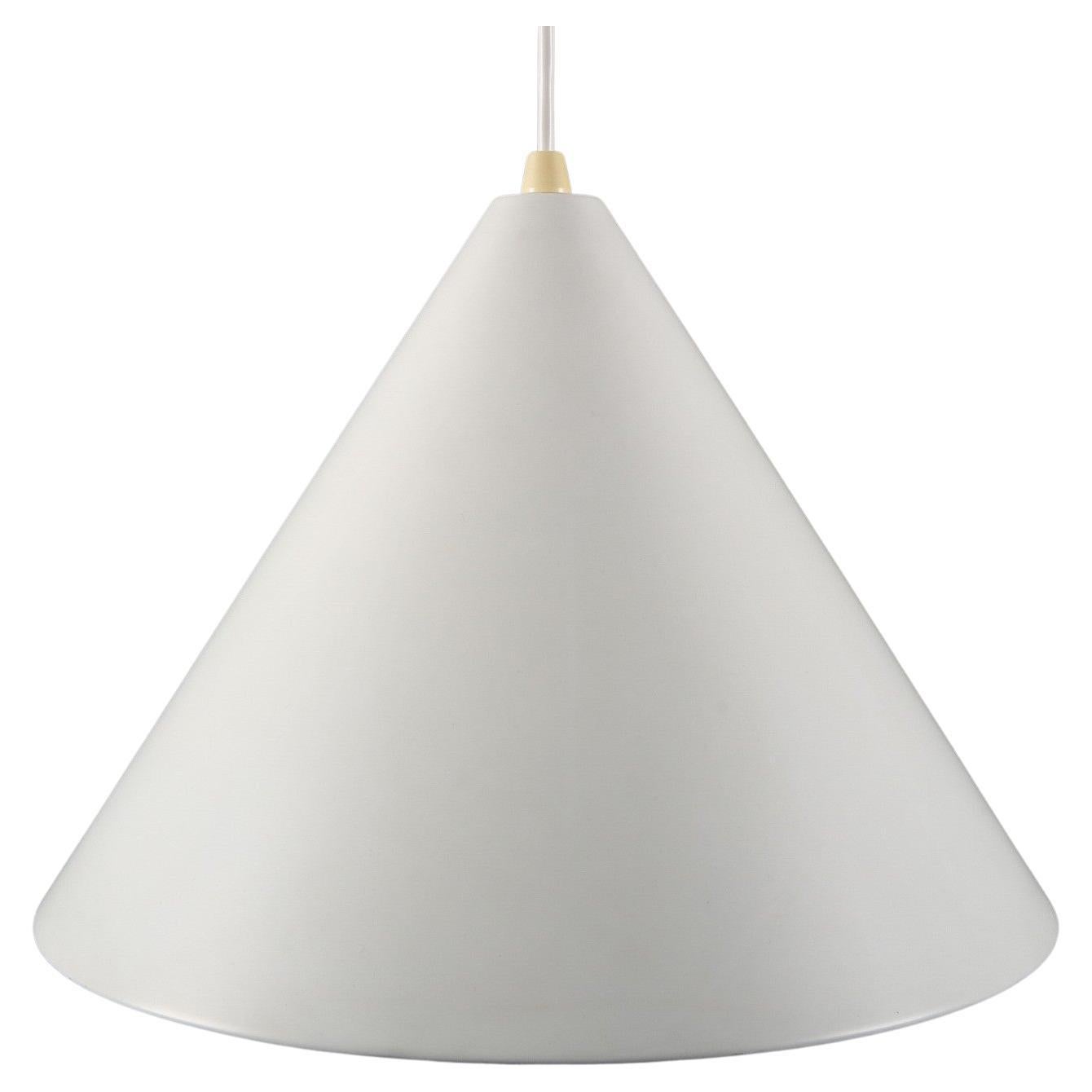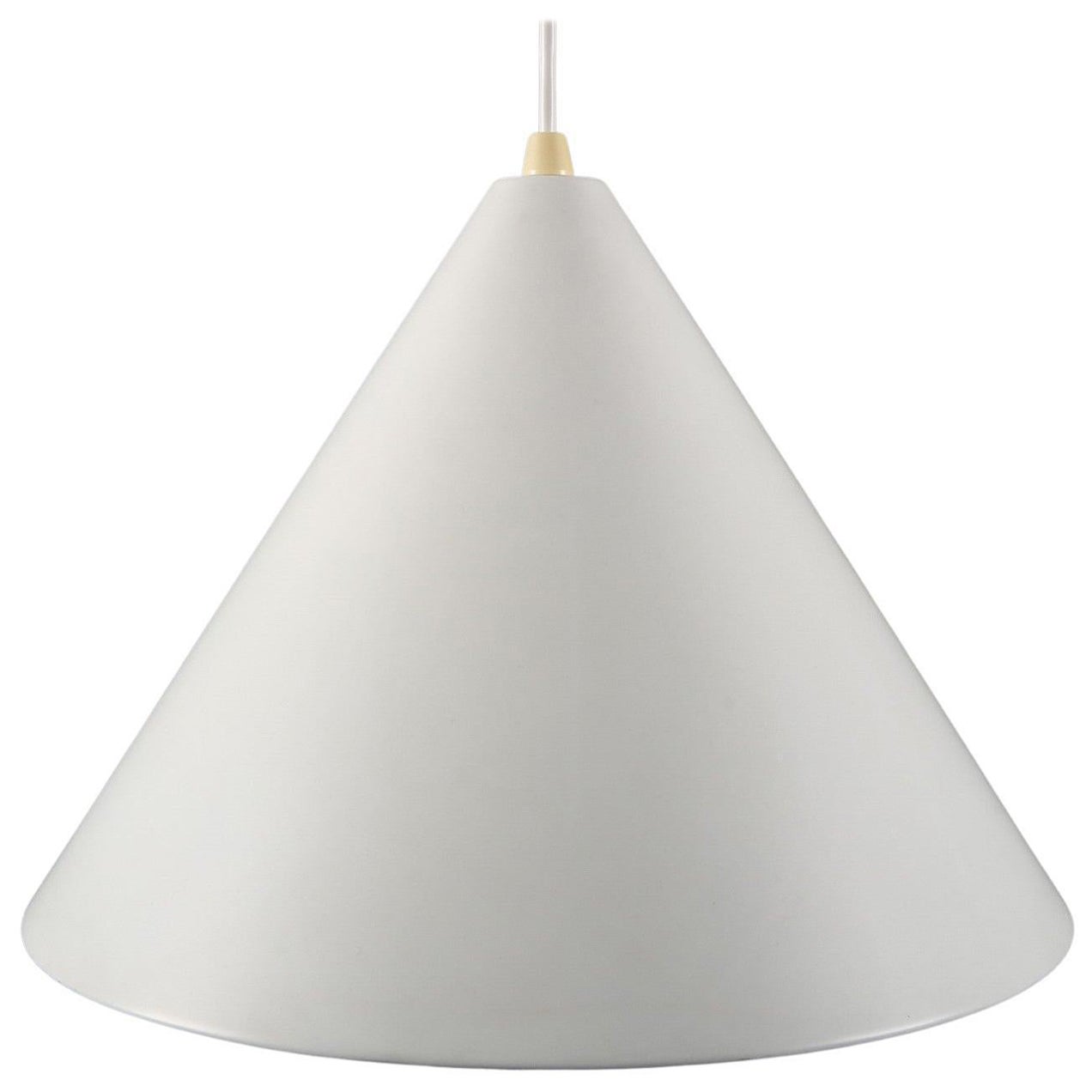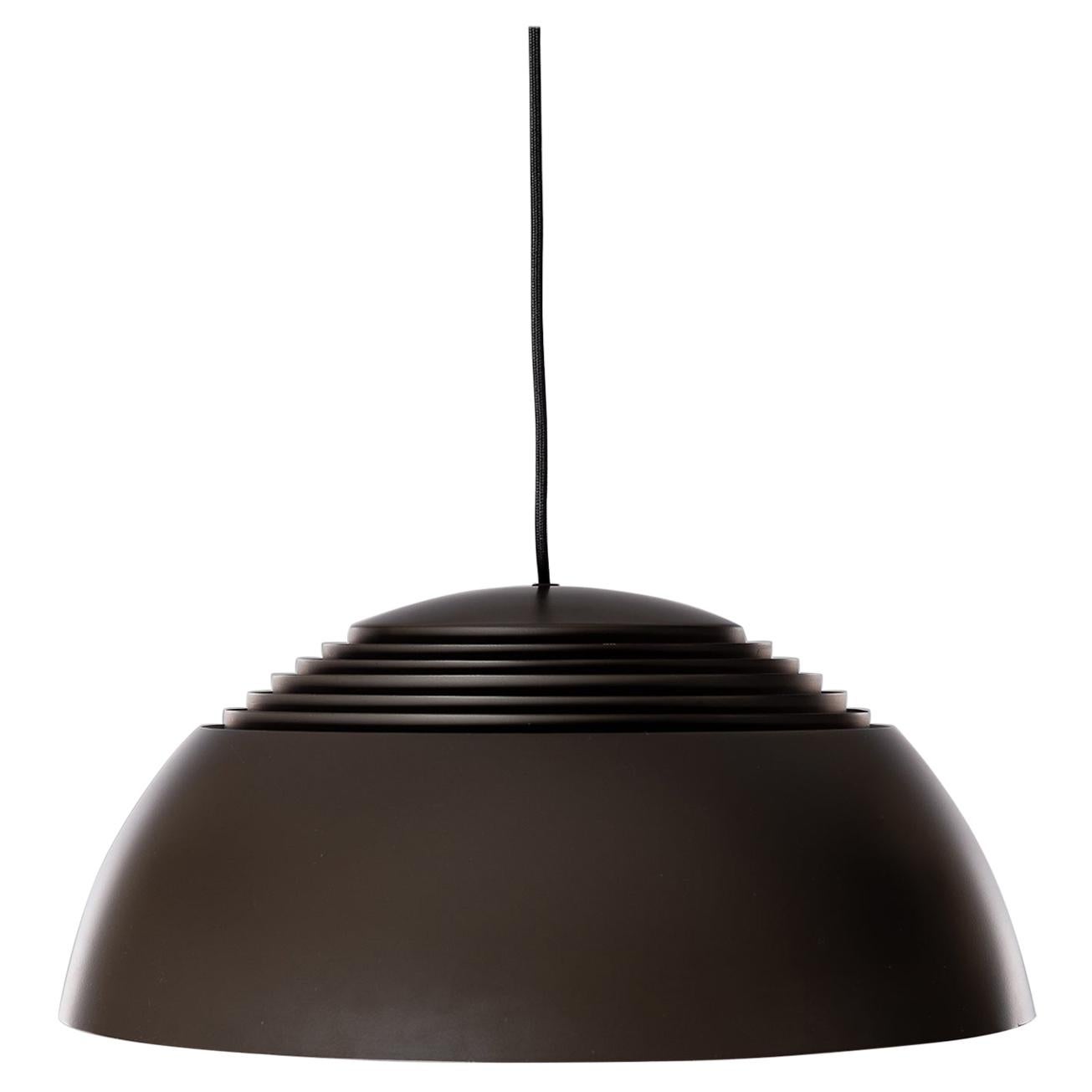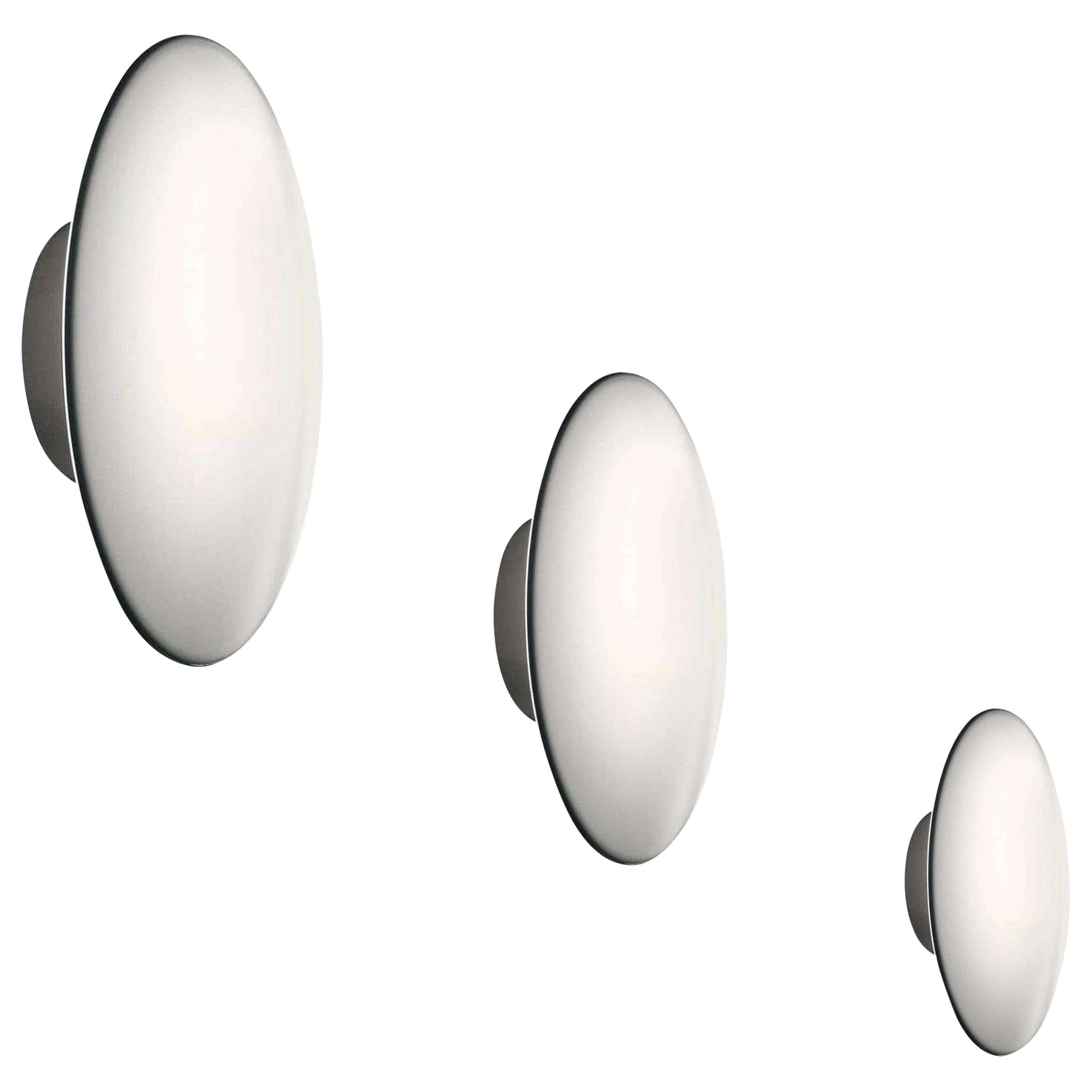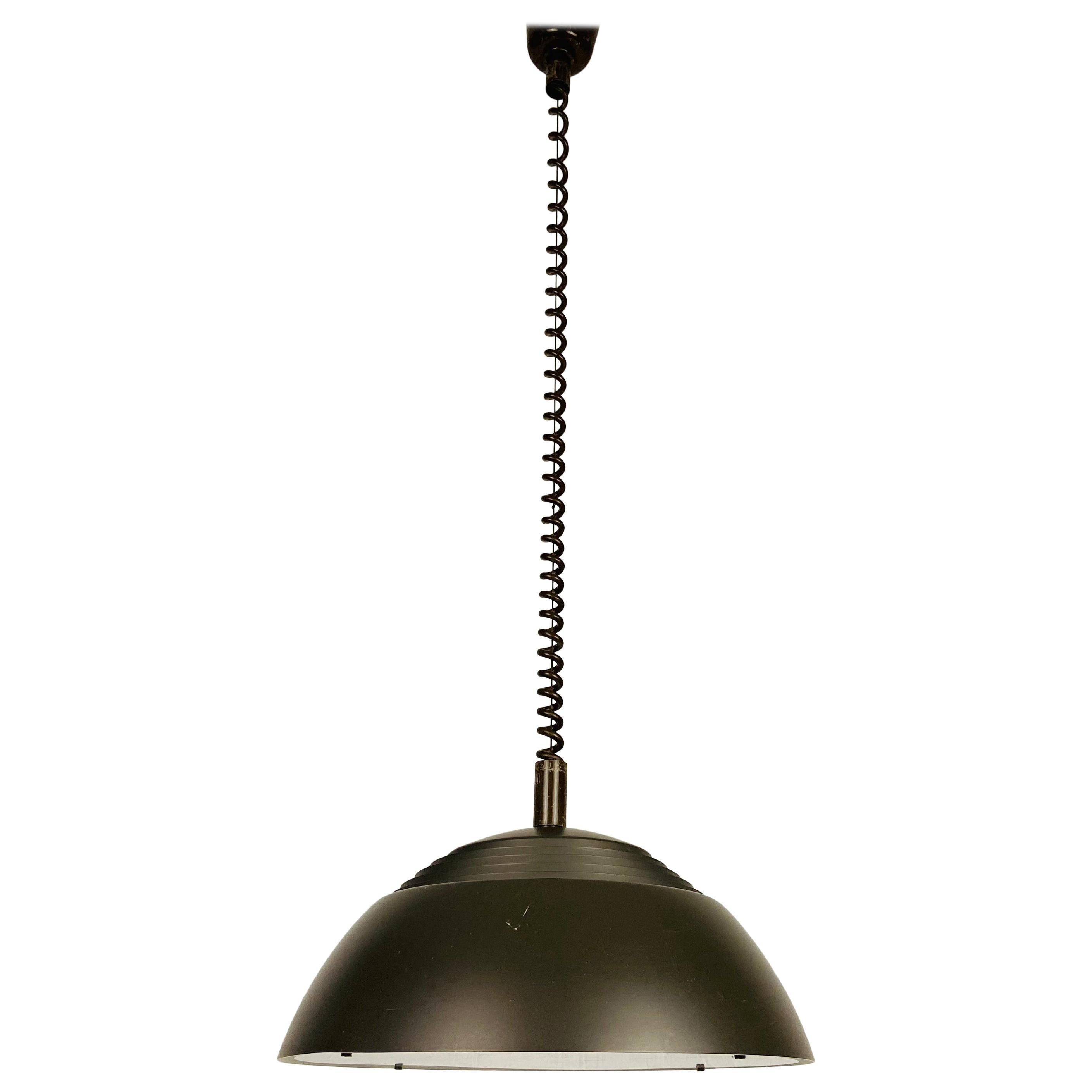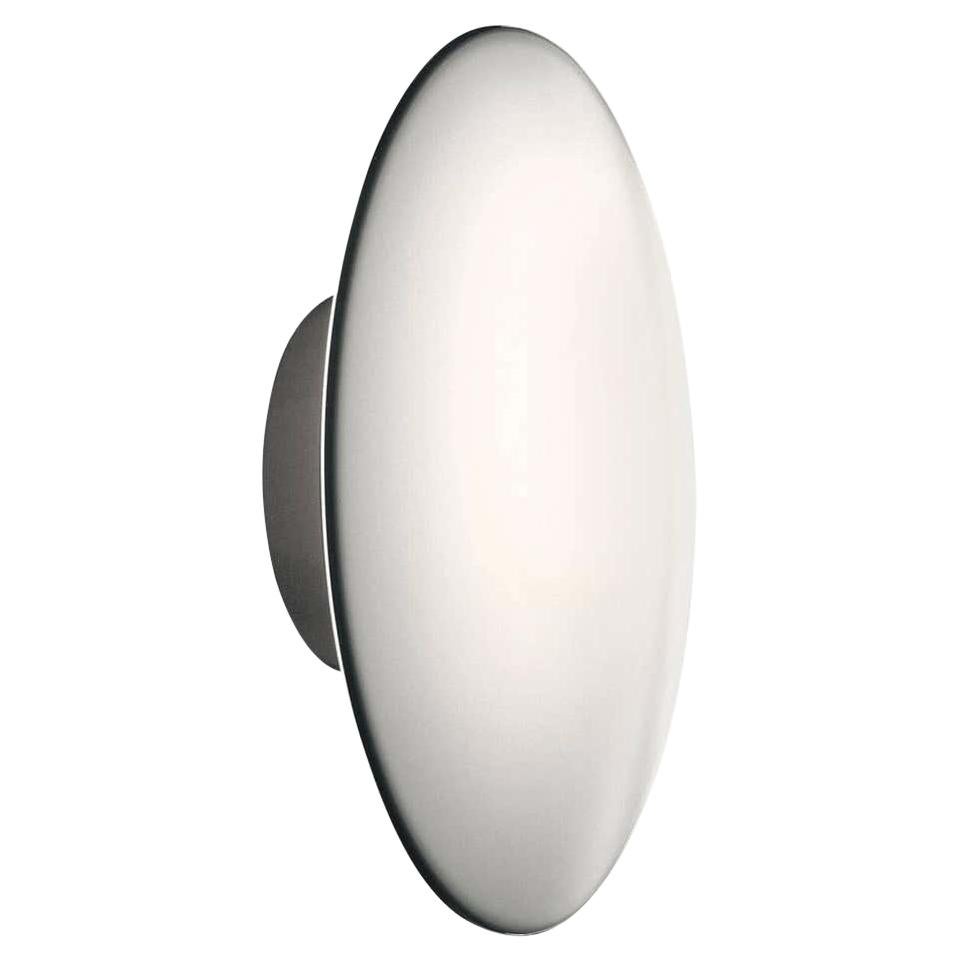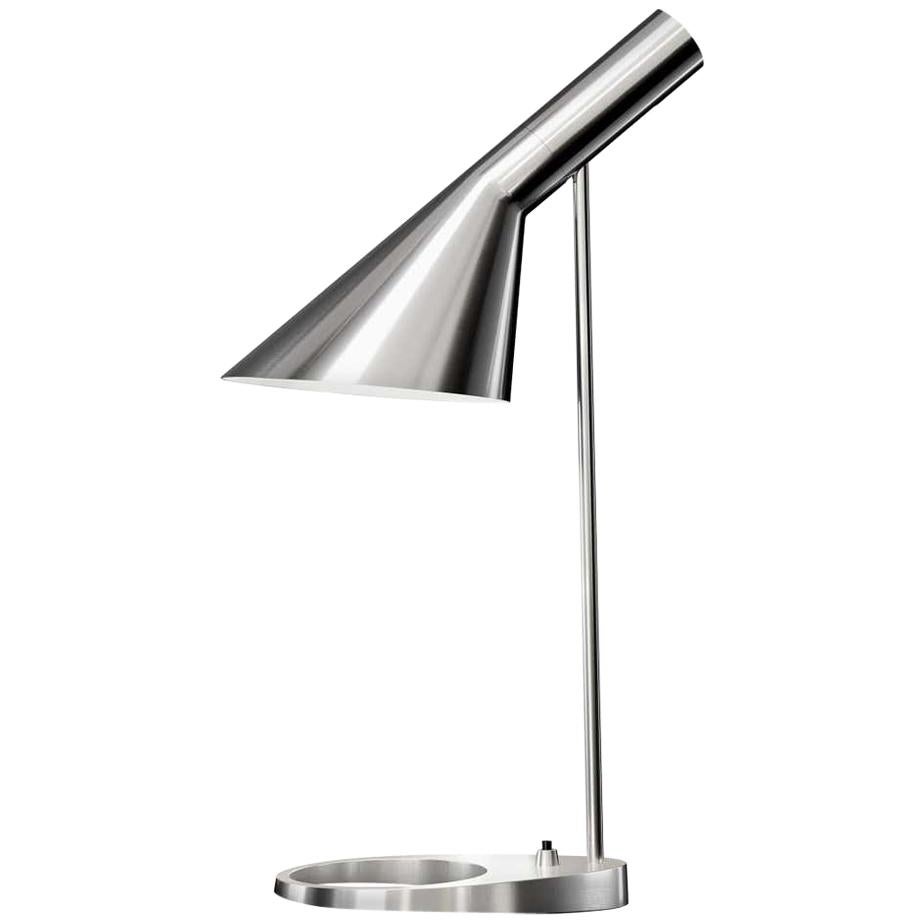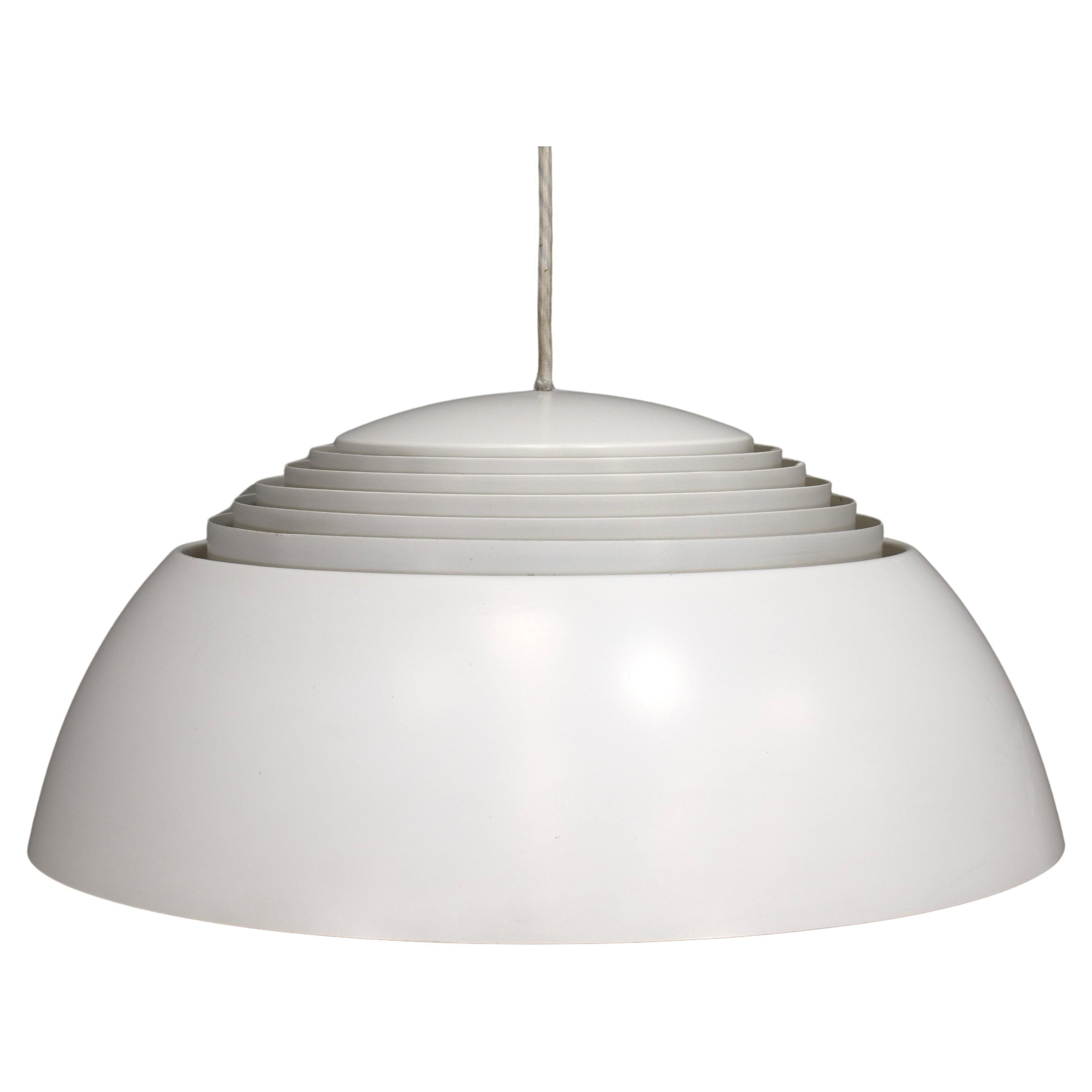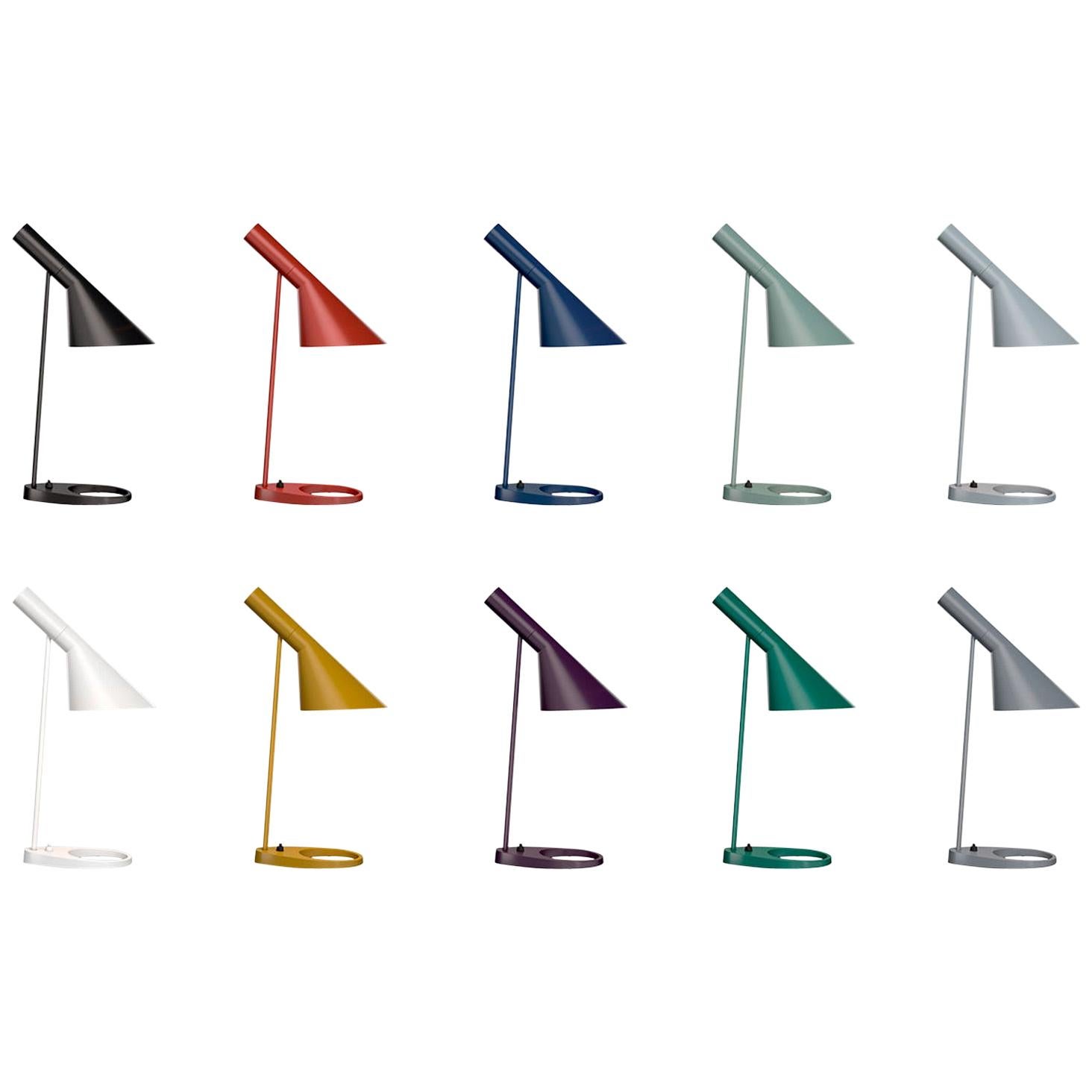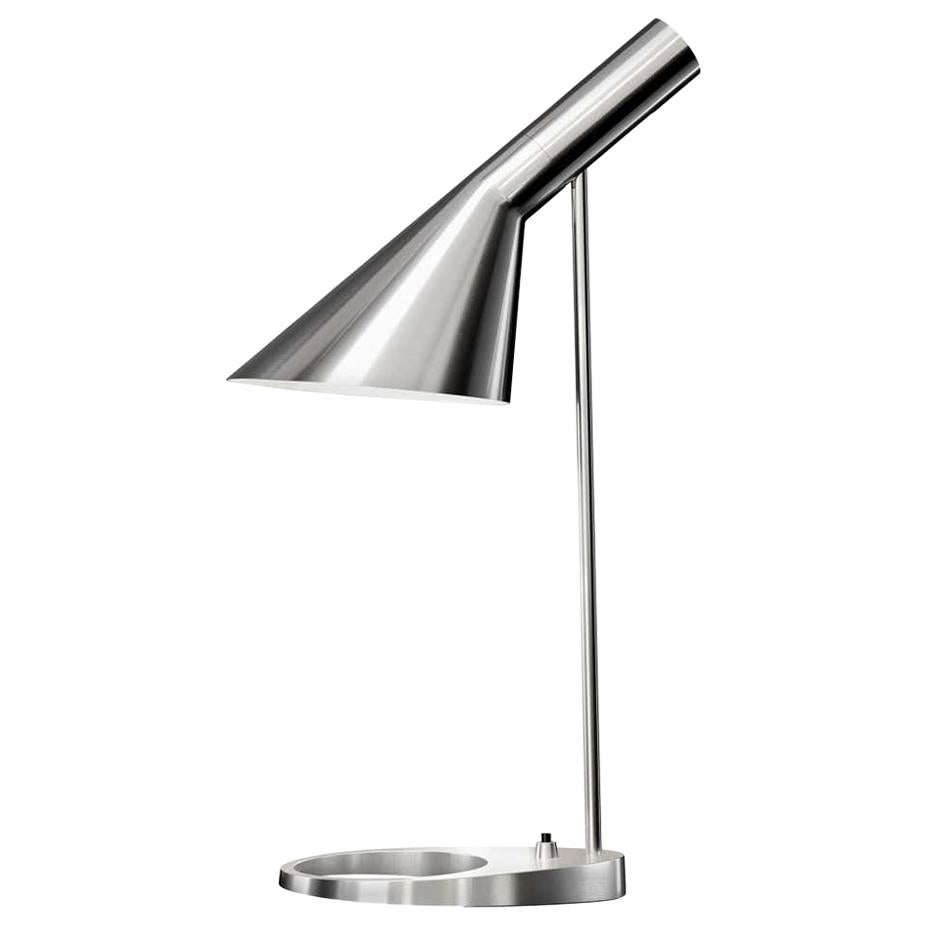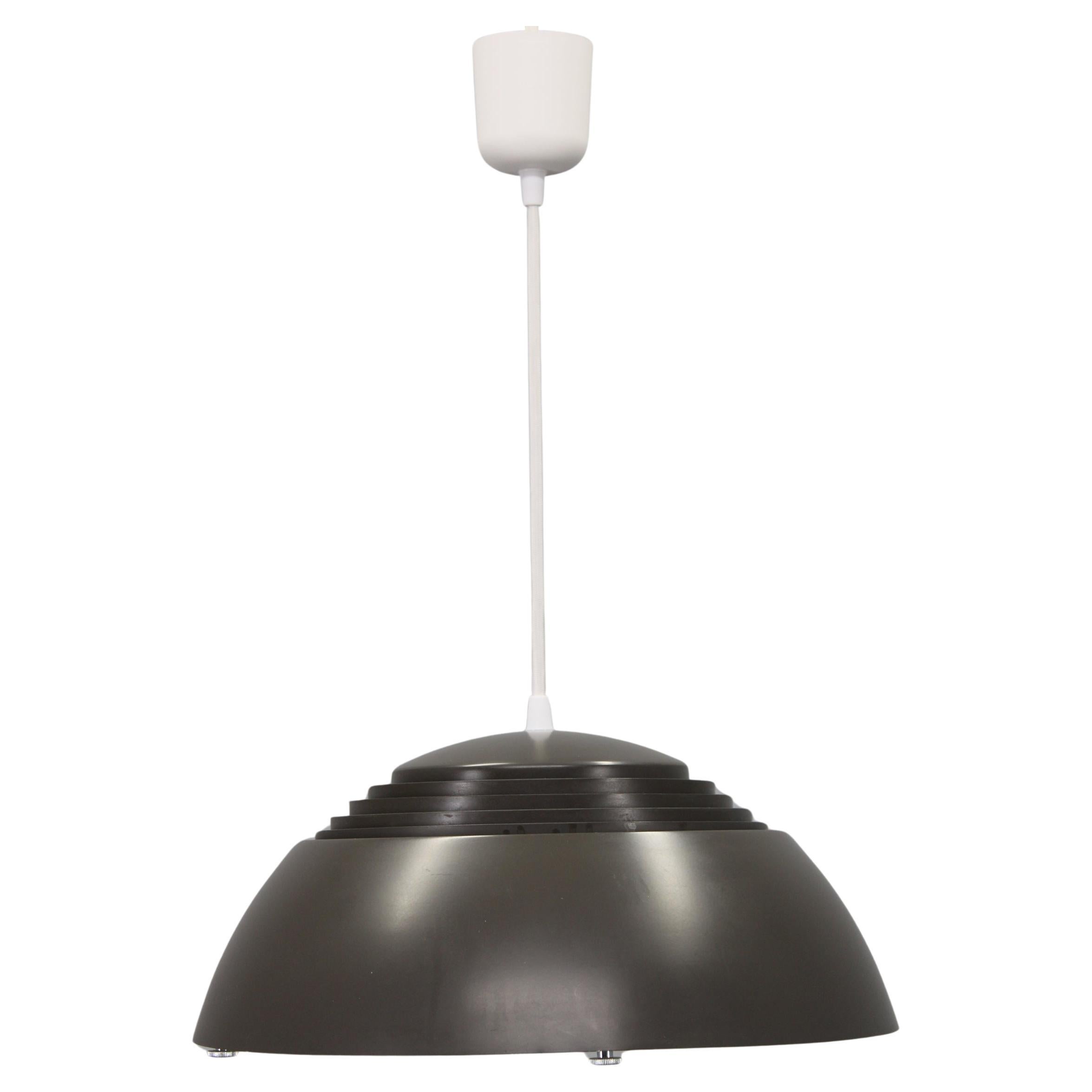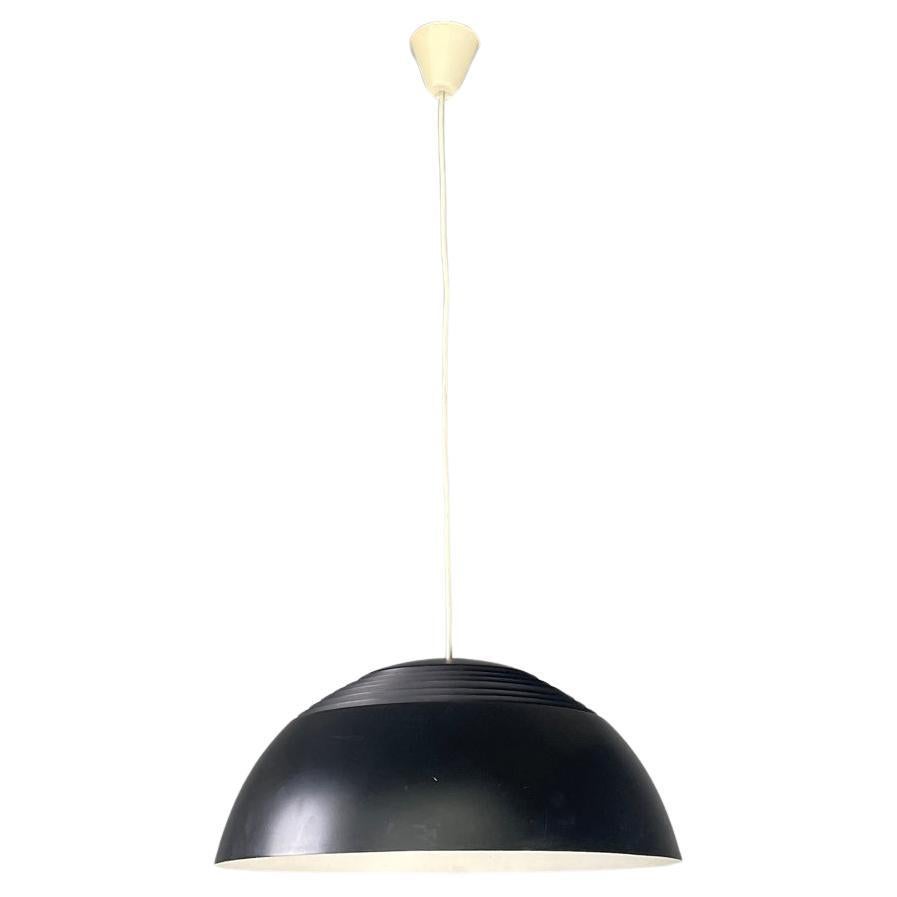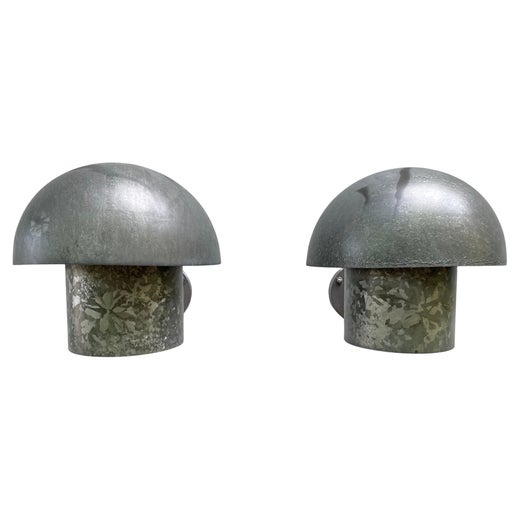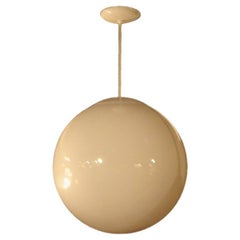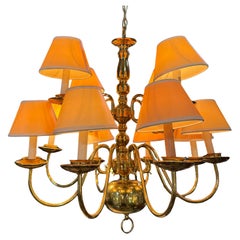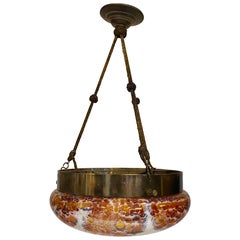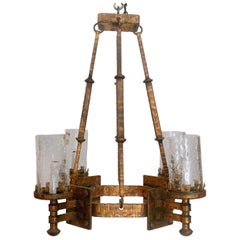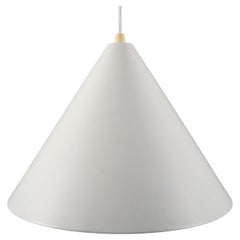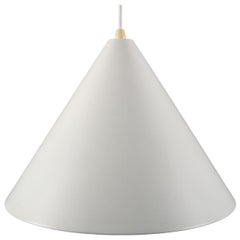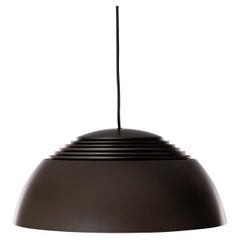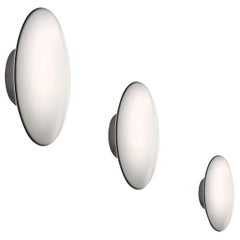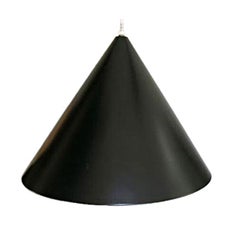
Black Billiard Lamp by Arne Jacobsen for Louis Poulsen
View Similar Items
Black Billiard Lamp by Arne Jacobsen for Louis Poulsen
About the Item
- Creator:Louis Poulsen (Designer),Arne Jacobsen (Designer)
- Dimensions:Height: 13 in (33.02 cm)Diameter: 17 in (43.18 cm)
- Place of Origin:
- Period:
- Date of Manufacture:1960s
- Condition:Very good original condition. Fully rewired.
- Seller Location:New York, NY
- Reference Number:Seller: LP31stDibs: U0507177887277
Louis Poulsen
Louis Poulsen is world-renowned as an innovator in modern Danish lighting, but this wasn’t the goal from the start. Founded in 1874 by Ludvig R. Poulsen as a wine importer, the business went through several incarnations before its first pendant lights came to fruition. Through its designs, the company helped establish the foundations of good lighting — function, comfort and ambience — that are now standard in modern furniture design.
In 1924, Danish architect Poul Henningsen partnered with Louis Poulsen & Co., then an electrical supply company, to create what’s now known as the Paris lamp. This design, which incorporated three layers of curved metal disks, created ambience with its indirect light instead of glare. Shown at the 1925 Exposition Internationale des Arts Décoratifs et Industriels Modernes in Paris — the exhibition that brought Art Deco design to worldwide attention — the Paris lamp was awarded a gold medal. This led to Poulsen and Henningsen working together on several lighting pieces, including the popular PH pendant light with its concentric shades for the Forum Building in Copenhagen. These high-profile projects helped make Louis Poulsen a go-to purveyor of innovative lighting design.
One of the company’s most well-known lamps is Henningsen’s PH Artichoke lamp (1958), with its 72 copper leaves artfully placed to conceal the light bulb, prevent glare and promote a warm, alluring glow in any room. Another is the steel and die-cast zinc AJ lamp (1960), which Arne Jacobsen designed with an adjustable angled shade for his commission for the SAS Royal Hotel in Copenhagen. The company has also worked with notables such as Verner Panton and Alfred Homann as well as, more recently, Louise Campbell and Oki Sato.
In 2010, the company was awarded the American Institute of Architects’ Honors in Collaborative Achievement Award; it was the first lighting manufacturer to receive this honor. In 2018, the company was acquired by an investment subsidiary of Investindustrial VI L.P.
Still headquartered in Denmark, the brand continues to produce its high-end lighting for both indoor and outdoor use, manufacturing both classic icons as well as new designs. “We design to shape light,” states Louis Poulsen. In doing so, they have also shaped culture.
Find a range of new and vintage Louis Poulsen floor lamps, table lamps and other lighting and furniture on 1stDibs.
Arne Jacobsen
The eye-catching work of the Danish architect and designer Arne Jacobsen often introduces new collectors to mid-20th century furniture. With their fluid lines and sculptural presence, Jacobsen’s signature pieces — the elegant Swan chair and the cozy-yet-cutting edge Egg chair, both first presented in 1958 — are iconic representations of both the striking aesthetic of the designers of the era and their concomitant attention to practicality and comfort. Jacobsen designed furniture that had both gravitas and groove.
Though Jacobsen is a paragon of Danish modernism, his approach to design was the least “Danish” of those who are counted as his peers. The designs of Hans Wegner, Finn Juhl, Børge Mogensen and others grew out of their studies as cabinetmakers. They prized skilled craftsmanship and their primary material was carved, turned and joined wood. Jacobsen was first and foremost an architect, and while he shared his colleagues’ devotion to quality of construction, he was far more open to other materials such as metal and fiberglass.
Many of Jacobsen’s best-known pieces had their origin in architectural commissions. His molded-plywood, three-legged Ant chair (1952) was first designed for the cafeteria of a pharmaceutical company headquarters. The tall-backed Oxford chair was made for the use of dons at St. Catherine’s College, Oxford, whose Jacobsen-designed campus opened in 1962 (while still under construction). The Swan, Egg and Drop chairs and the AJ desk lamp were all created as part of Jacobsen’s plan for the SAS Royal Copenhagen Hotel, which opened in 1960. (The hotel has since been redecorated, but one guest room has been preserved with all-Jacobsen accoutrements.)
To Jacobsen’s mind, the chief merit of any design was practicality. He designed the first stainless-steel cutlery set made by the Danish silver company Georg Jensen; Jacobsen’s best-selling chair — the plywood Series 7 — was created to provide lightweight, stackable seating for modern eat-in kitchens. But as you will see from the objects on 1stDibs, style never took a backseat to function in Arne Jacobsen’s work. His work merits a place in any modern design collection.
Find authentic Arne Jacobsen chairs, tables, sofas and other furniture on 1stDibs.
More From This Seller
View All21st Century and Contemporary American Mid-Century Modern Chandeliers an...
Metal
Vintage 1970s Georgian Chandeliers and Pendants
Brass
Vintage 1960s European Mid-Century Modern Chandeliers and Pendants
Brass
Early 2000s American Spanish Colonial Chandeliers and Pendants
Metal
Vintage 1960s Italian Mid-Century Modern Chandeliers and Pendants
Glass
Early 2000s American Spanish Colonial Chandeliers and Pendants
Metal
You May Also Like
Mid-20th Century Danish Mid-Century Modern Chandeliers and Pendants
Metal
Mid-20th Century Danish Mid-Century Modern Chandeliers and Pendants
Metal
Vintage 1950s Danish Mid-Century Modern Chandeliers and Pendants
Aluminum
21st Century and Contemporary Danish Modern Wall Lights and Sconces
Metal
Vintage 1960s Danish Mid-Century Modern Chandeliers and Pendants
Aluminum
21st Century and Contemporary Danish Modern Wall Lights and Sconces
Metal
Recently Viewed
View AllRead More
The 21 Most Popular Mid-Century Modern Chairs
You know the designs, now get the stories about how they came to be.
Arne Jacobsen’s Egg Chair Scrambled the Idea of What a Wingback Could Be
The curvaceous Egg was designed to cradle the body and offer privacy. Later, it became the seat of choice for bosses in movies, too.
